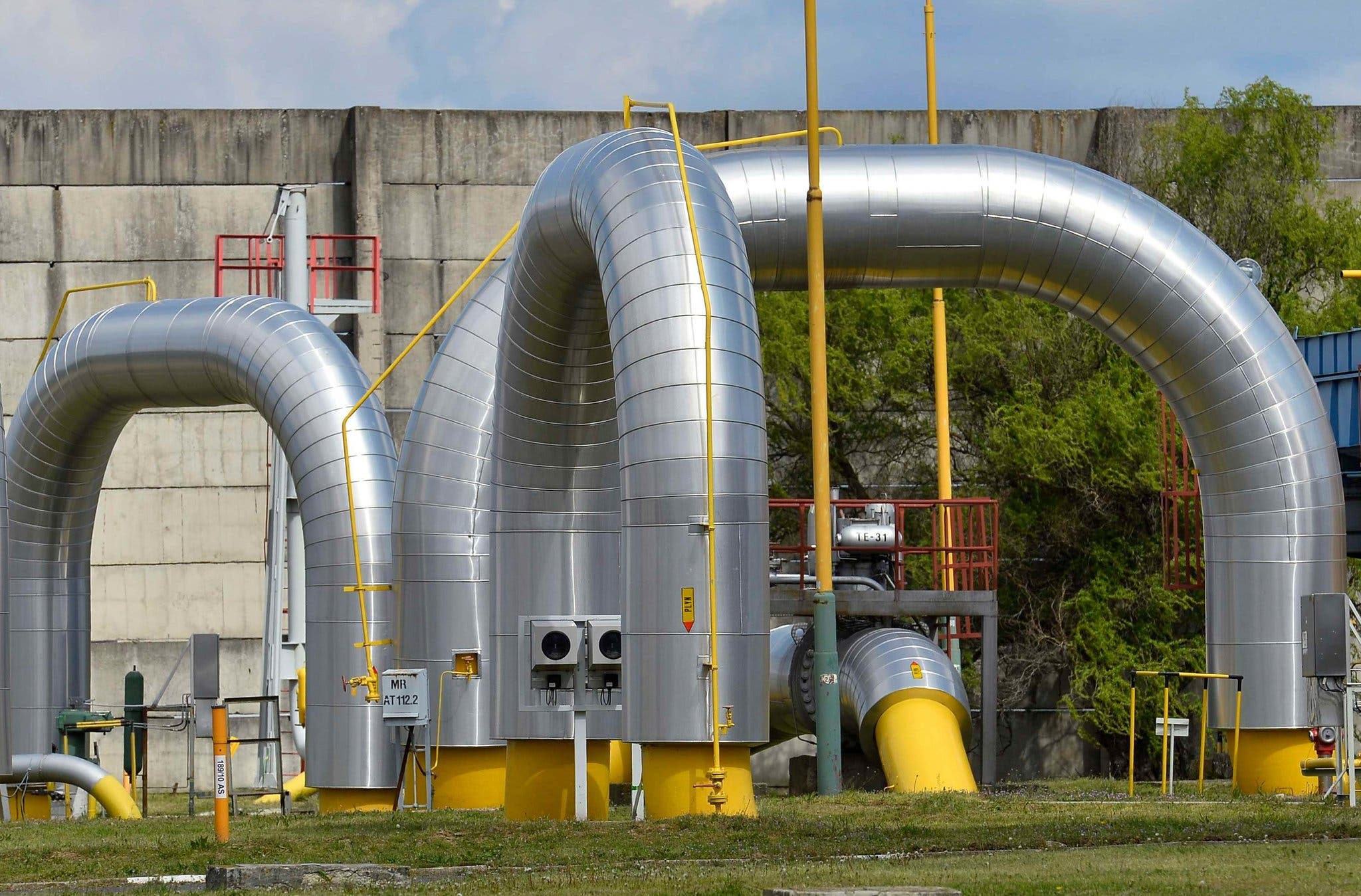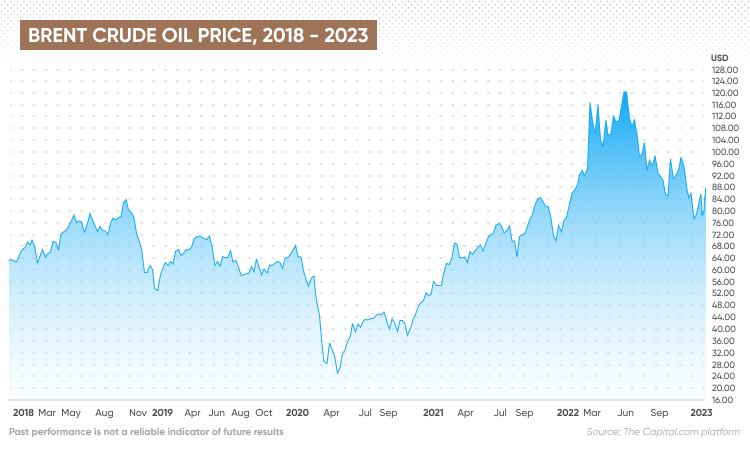European Union Debates Russian Gas Spot Market Restrictions

Table of Contents
Economic Impacts of Russian Gas Spot Market Restrictions
Restricting access to the Russian gas spot market would have profound economic consequences for the EU. The potential ramifications extend beyond simple price increases, impacting various sectors and necessitating careful consideration of mitigation strategies.
Increased Energy Prices for Consumers
The most immediate impact of Russian gas spot market restrictions would likely be significantly higher energy bills for European citizens and businesses. This is due to several factors:
- Increased reliance on alternative, potentially more expensive, sources: The EU would need to rapidly increase imports from alternative suppliers, often at higher prices, to compensate for the loss of Russian gas.
- Vulnerability to price volatility: The global gas market is inherently volatile. Reduced access to Russian gas increases the EU's vulnerability to price swings, potentially leading to unpredictable and substantial increases in energy costs.
- Impact on inflation: Higher energy prices would contribute to broader inflationary pressures, potentially impacting the cost of goods and services across the economy.
The EU may need to consider government intervention to mitigate these price hikes. This could include subsidies for vulnerable households or the implementation of price caps, although such measures have their own economic and logistical challenges. The effectiveness and potential unintended consequences of such interventions require careful analysis.
Impact on European Industries
Energy-intensive industries, such as manufacturing and chemicals, would be particularly hard hit by Russian gas spot market restrictions. The consequences could include:
- Loss of competitiveness: Higher energy costs would reduce the competitiveness of European industries compared to those in regions with cheaper energy.
- Potential relocation of industries: Companies might relocate production to regions with more affordable energy sources, leading to job losses in the EU.
- Job losses: Reduced production and potential factory closures could result in significant job losses across various sectors.
- Supply chain disruptions: Higher energy costs could disrupt supply chains, leading to shortages and increased prices for consumers.
Targeted support measures for affected industries, such as tax breaks or grants, might be necessary to mitigate these negative impacts and maintain industrial competitiveness. The design and implementation of such support programs would require careful consideration to ensure effectiveness and prevent market distortions.
Geopolitical Implications of Restricting Russian Gas
Imposing Russian gas spot market restrictions would have significant geopolitical implications, impacting EU-Russia relations and internal EU unity.
Relations with Russia
Restricting access to the Russian gas market could lead to a significant escalation of tensions between the EU and Russia. Potential retaliatory measures from Russia include:
- Retaliatory measures from Russia: Russia could retaliate by further restricting gas supplies, potentially creating an energy crisis within the EU.
- Further disruption of energy supplies: Existing supply routes could be affected, causing further instability and uncertainty in the gas market.
- Increased geopolitical instability: The energy crisis could exacerbate existing geopolitical tensions and destabilize the region.
Diplomatic solutions and negotiations are crucial to de-escalate tensions and avoid a full-blown energy crisis. However, the success of such efforts depends heavily on the willingness of both sides to engage in constructive dialogue.
EU Unity and Internal Divisions
Achieving a unified EU approach to Russian gas spot market restrictions presents a significant challenge due to:
- Differing levels of dependence on Russian gas among member states: Some member states are far more reliant on Russian gas than others, leading to differing opinions on the best course of action.
- Competing national interests: National interests may clash, making it difficult to reach a consensus on restrictive measures.
- Potential for internal disagreements: Disagreements among member states could weaken the EU's collective bargaining power and effectiveness in dealing with Russia.
Finding common ground and reaching a compromise will require significant diplomatic efforts and a willingness to prioritize the collective interests of the EU over individual national concerns. Open communication and a transparent decision-making process are essential to foster unity and address internal divisions.
Alternative Energy Sources and Market Diversification
Reducing reliance on Russian gas requires a two-pronged approach: transitioning to renewable energy and diversifying gas supplies.
Transition to Renewable Energy
Restricting access to Russian gas could accelerate the EU's transition to renewable energy sources. This would involve:
- Investments in renewable energy infrastructure: Significant investments in wind, solar, and other renewable energy technologies would be needed to replace Russian gas.
- Development of smart grids: Modernizing the electricity grid is crucial to integrate intermittent renewable energy sources effectively.
- Energy efficiency improvements: Improving energy efficiency across buildings, transportation, and industry would significantly reduce energy consumption.
Achieving energy independence from Russia through renewables is a long-term goal requiring substantial investment and a concerted effort across the EU. The feasibility and timeline for such a transition depend on various factors, including technological advancements, political will, and financial resources.
Diversification of Gas Supplies
Diversifying gas supplies is essential to reduce dependence on Russia. This involves:
- Increased LNG imports: Increasing imports of liquefied natural gas (LNG) from various suppliers can provide a more secure and diversified gas supply.
- Expansion of pipeline connections with other countries: Building new pipelines to connect with alternative gas suppliers can improve energy security.
- Potential for new partnerships: Developing new partnerships with gas-producing countries can strengthen the EU's energy security.
Diversifying gas supplies presents both challenges and opportunities. The challenges include securing sufficient supply, negotiating favorable contracts, and building the necessary infrastructure. However, diversifying gas supplies is crucial to reduce reliance on a single supplier and enhance the EU's energy security.
Conclusion
The debate surrounding Russian gas spot market restrictions within the European Union is complex and far-reaching. Implementing such restrictions carries significant economic and geopolitical risks, including increased energy prices, potential industrial disruption, and strained relations with Russia. However, the EU’s long-term energy security and independence necessitate a strategic shift towards renewable energy and diversification of gas supplies. The EU must carefully weigh the immediate costs against the long-term benefits of reducing its reliance on Russian gas. Further discussions and strategic planning are crucial for navigating this complex challenge and formulating effective policies to mitigate the impact of restrictions on the Russian gas spot market. Continued monitoring of the situation and further analysis of the impact of Russian gas spot market restrictions are essential for ensuring the EU's energy security. The future of European energy security hinges on a robust and coordinated response to this critical challenge.

Featured Posts
-
 Navigate The Private Credit Boom 5 Dos And Don Ts
Apr 24, 2025
Navigate The Private Credit Boom 5 Dos And Don Ts
Apr 24, 2025 -
 Oil Prices Today April 23rd Market Update And Analysis
Apr 24, 2025
Oil Prices Today April 23rd Market Update And Analysis
Apr 24, 2025 -
 Tyler Herro Wins Nba 3 Point Contest Defeats Buddy Hield
Apr 24, 2025
Tyler Herro Wins Nba 3 Point Contest Defeats Buddy Hield
Apr 24, 2025 -
 The Liberal Party And Fiscal Responsibility A Critical Analysis
Apr 24, 2025
The Liberal Party And Fiscal Responsibility A Critical Analysis
Apr 24, 2025 -
 Teslas Q1 Profit Drop Impact Of Musks Political Involvement
Apr 24, 2025
Teslas Q1 Profit Drop Impact Of Musks Political Involvement
Apr 24, 2025
